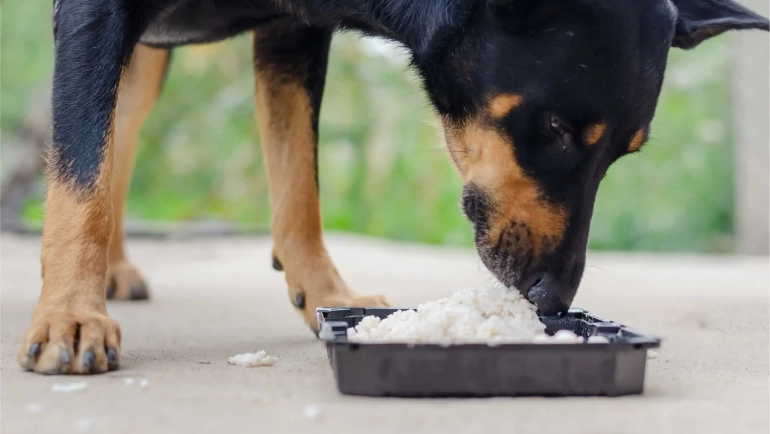168Views

Unraveling How Long it Takes for a Dog to Digest Food
Understanding your dog’s digestive process is key to providing optimal care for your furry friend. Have you ever wondered how long it takes for your canine companion to digest their meals?
In this article, we’ll take a journey through the digestive system of dogs, exploring the factors that influence digestion time and offering insights into fostering a happy and healthy digestive experience for your pet.
The Canine Digestive System
To comprehend the timeline of digestion in dogs, it’s essential to grasp the intricacies of their digestive system.
From the moment food enters their mouth, it embarks on a journey through the stomach and intestines, where the nutrients are absorbed, and waste is prepared for elimination.
Factors Influencing Digestion Time
Several factors contribute to the variability in digestion time among dogs. Size, breed, age, and even individual health conditions can impact how quickly or slowly food moves through their system.
Larger breeds may have a longer digestive transit time compared to smaller breeds, and puppies generally have faster digestion than senior dogs.
You May Also Like: Best Super Foods For Your Canine
Average Digestion Time for Dogs
While there is no one-size-fits-all answer, the average time it takes for a dog to digest food is around 8 to 10 hours.
This duration can vary based on factors such as the type of food consumed, the dog’s age, and overall health. High-quality, easily digestible diets may expedite the process, whereas complex or less digestible foods may take longer.
Understanding the Stages of Digestion

Digestion in dogs occurs in several stages: ingestion, mechanical breakdown in the stomach, chemical breakdown with digestive enzymes, nutrient absorption in the small intestine, and water absorption in the large intestine.
Each stage plays a crucial role in extracting nutrients from the food, supporting your dog’s energy and overall well-being.
Tailoring Diets for Optimal Digestion
Choosing the right diet is fundamental to ensuring efficient digestion for your dog. High-quality commercial dog foods that meet nutritional standards are designed to be easily digestible.
However, it’s important to consider your dog’s individual needs, including any dietary restrictions or health conditions, and consult with your veterinarian for personalized recommendations.
Read Also: Can My Dog Eat Fruit?
Monitoring Digestive Health
Observing your dog’s digestive habits is an integral part of responsible pet ownership. Regular bowel movements, consistency in stool, and signs of discomfort or distress can provide valuable insights into their digestive health.
Any persistent changes or concerns should prompt a consultation with your veterinarian.
Conclusion:
The journey of food through a dog’s digestive system is a fascinating and vital process for their overall health. By understanding the factors influencing digestion time, choosing appropriate diets, and keeping a watchful eye on their digestive health, you play a pivotal role in ensuring your canine companion enjoys a delightful and efficient digestive experience. Embrace the uniqueness of your dog’s digestive system, and foster a well-balanced and happy life for your beloved pet.


